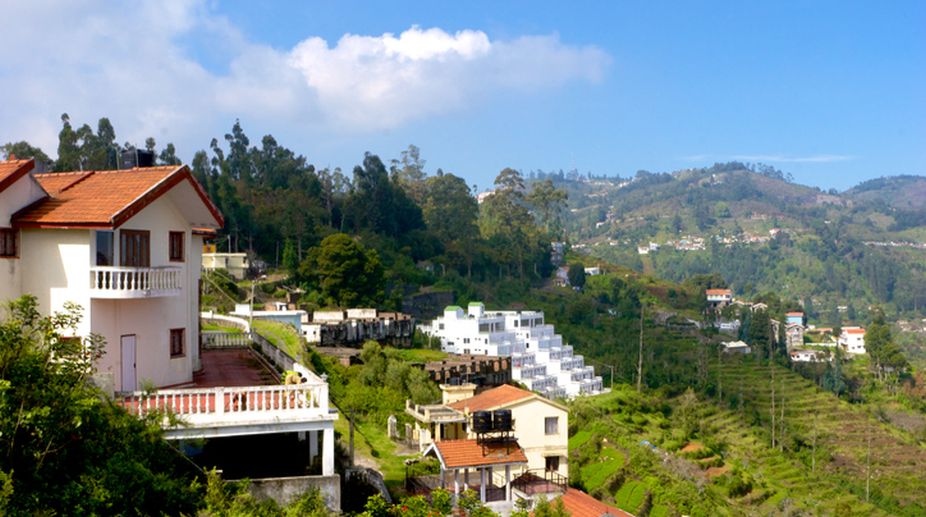“Make two-language formula successful before thinking about third language”: P Chidambaram
He further said that in Tamil Nadu, there are 52 Kendriya Vidyalayas which are run by Central Government.

(Getty Images)
Teenagers Prabhu Deva and Amritha stand for change in these two districts of Tamil Nadu. Not only did they prevent three child marriages but are also breaking the taboo around sex education as also improving toilet facilities for the safety of young girls in their villages.
Both of them, who are pursuing graduation courses, are a part of bigger peer groups, which in turn are part of the Adolescent Empowerment Programme (AEP) of Unicef’s National Child Labour Programme that has been formed to raise awareness among villagers of health and social issues — and take up their grievances with district authorities.
Advertisement
The peer groups, whose members are children aged between 11 and 18, have done much work in areas like providing drinking water, improving sanitation and training children in soft skills, among others. The latest demand being addressed is dustbins for their villages.
Advertisement
“I am proud of what I am doing. The biggest achievement was when we stopped the marriage of a 13-year-old girl with a 38-year-old man working in the Gulf. We received the information and informed the police, who rescued the girl on the day she was to get married. It was due to our efforts she is now back to her studies and is also learning sewing,” Prabhu Deva told this visiting IANS correspondent.
The 18-year-old boy, leader of the group in his village, says that following the incident, complaints of child marriage have ceased as the group members have gone from house to house to make the largely uneducated parents understand the negativities of child marriage.
Amritha proudly spoke of the courage her group had shown to prevent two teenage girls from her village getting married to men in their 40s.
Her group has also been raising awareness on puberty-related matters, which was hitherto taboo.
Another no-no before the peer groups were formed was discussing issues relating to sex education. In fact, doing so was akin to committing an offence. While teenagers felt shy to discuss the subject, the few found talking about it or even of changes related to the body were scolded by their parents or teachers. In schools, the teachers prevented elaboration on subjects like reproduction.
All this has changed after the formation of the peer groups.
“We meet twice a month and discuss several matters pertaining to the adolescents in the village. Behavioural change and soft skills training are among a few of the things we discuss,” Amritha, who is studying maths and biology for her graduation, told IANS.
The groups also meet their counterparts from other areas while being trained by the district authorities on how to deal with the social problems that arise in rural society.
According to government statistics, Salem is among the few districts with a high number of child marriages in Tamil Nadu. Until 2016, the district had 380,000 girls below 15, of whom 2,414 were married.
International NGO Action Aid said in 2016 that India accounts for 33 per cent of the child brides in the world with nearly 103 million girls married off before they were 18.
“There are many activities that are being taken up by the adolescent peer groups. Apart from the social causes, they also encourage other children to pursue their careers and not get diverted by social evils. This has been successful for the last two-and-a-half months,” Samanthi, head social worker at the District Child Protection Unit, told IANS.
Apart from the efforts by the adolescent group in the villages, the district authorities have also initiated project Udhayam — an initiative of the Salem police in partnership with Unicef.
As part of this project, 20 child welfare police officers are being trained to sensitise the peer educators in the 109 schools of Salem town.
An all-women police station was also inaugurated in Salem city. Aiming to offer a friendly face to children in distress, the walls of the police station are painted with famous cartoon caricatures and on offer are books and games.
“We aim to make the police station more friendly so that children are comfortable and have the confidence to approach us whenever in distress. This police station will also serve as a counselling centre for children who are sexually abused, abandoned, recovered from kidnappers or lost. We will ensure their full protection here,” Salem Police Commissioner Sanjeev Kumar said.
So far 23 schools have been covered as part of the outreach and over 23,000 children sensitised.
Advertisement